My Religion: A Mixture of Gnostic Christianity and Personal Pursuit of Knowledge
Hi Everyone,
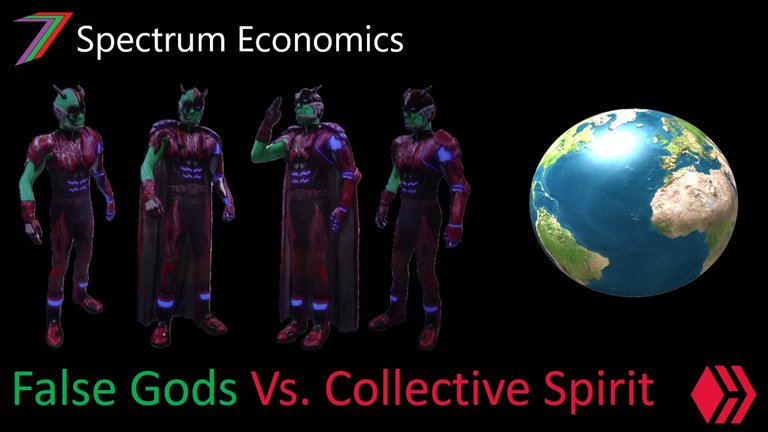
I do not believe having a religion is completely necessary. I do believe we all need a form of belief system that offers us some form of guidance. Something that offers meaning to our lives. Religion can offer that but it can also stifle our beliefs and development, as religion is often presented rigidly. There are benefits to having an open-mind. There are also benefits to having strong convictions. I do not believe that these two need to be mutually exclusive.
We can be both strong and flexible in our beliefs and approaches to life. A way of achieving this is through constant evaluation of new information and experiences. We should do this with minimal bias, which is very difficult. I believe the best approach to partly overcome the effect of personal bias is to acknowledge it and understand how it could affect interpretation. This extends but also improves our evaluation process. The evaluation of information and experiences may strengthen what we believe or cause us to question it. Either outcome is healthy for our belief system. We just need to be prepared for what journey this takes us on.
In this post, I describe how my religious beliefs have been shaped by various events and personal decisions. My beliefs have shifted many times. Some of the shifts have occurred by questioning events and information before me. Other times my beliefs have just naturally evolved as fresh experiences are absorbed and older ones become neglected through the passage of time. My beliefs have been both consciously and subconsciously shaped.
I have discussed my beliefs in several other posts. In my post Vegan Economics – My Story(Part 1), I discussed how my beliefs influenced me to adopt a vegan lifestyle. In my post, God, Gods, Aliens, and Trolls, I discussed my beliefs regarding the origins of the human species. This post describes how my thought process led me to most of the arguments I made in that post.
My Personal Experiences
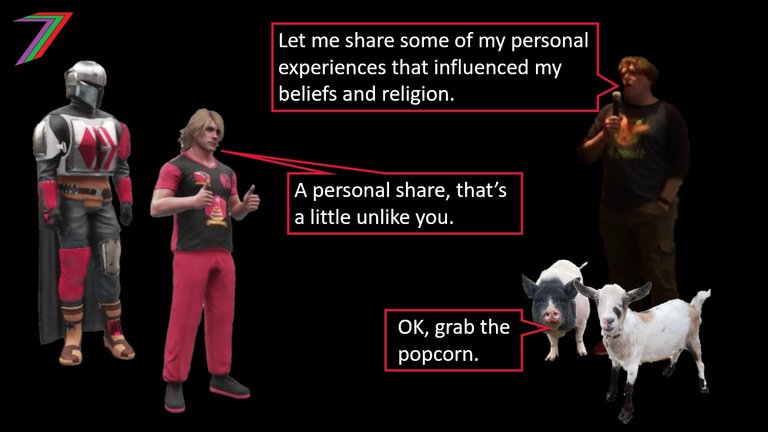
I was born in the town of Southampton, which is located in the county of Hampshire in England, I spent the first 6+ years of my life in Southampton. I spent the next 4+ years of my life in the county of Devon in the village of Ipplepen followed by the small town of Paignton, see map below.
Map of South England
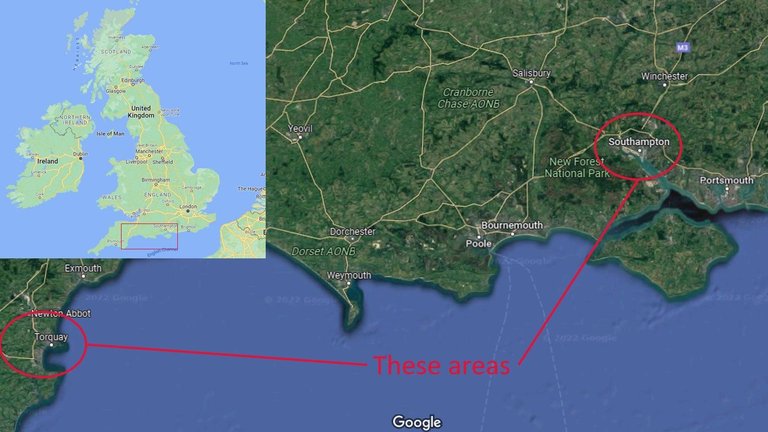
I had limited exposure to religion during this period. My parents did not go to church. Most of my experience came from school. None of these schools were religion based but short Christian prayers were conducted during some of the morning assemblies.
When I was 10 almost 11 years old, my family moved to Singapore. None of us attended church and I attended a secular Government primary school that did not teach or practice anything relating to religion. On graduating from primary school, I went to a Methodist Secondary School. This school had a religious focus. There was a Chapel Service every Monday and religious classes on at least one day a week.
I did not attend this school because of religion. I did so, because it was one of the more prestigious secondary schools in the county. Religious studies were not an official part of the curriculum. Therefore, it was not tested. As it was not tested, I did not put much effort into it. I must have absorbed some of the information but I was not openly seeking to understand more about Christianity. I was at this school for 4 years and I left after completing my ‘O’ Level examinations. I went on to complete my ‘A’ Level studies at a less prestigious school (I failed French and some of my other ‘O’ Level grades could have been better). This school was secular like the primary school.
Despite exposure to Christianity at my secondary school, I had no urge to attend church. This was partly out of lack of interest and partly in an alignment with the views of my parents. After my ‘A’ Levels, I was conscripted into the Singapore Armed Forces for about 2 ½ year. After that, I went to university to obtain my Bachelor’s Degree in Economics. I did not have exposure to religion other than just a few brief conversations with friends, classmates, army mates, etc.
In 2005, I moved to Queensland Australia where I completed my Master’s Degree in Economics. In 2008, I was exposed to Christianity again. I was forced out of Australia to obtain a visa to work in Australia (Australian immigration rules are confusing). I stayed in New Zealand for about a month. That was a tough period as I was very low on money. When I came back my sister introduced me to some of her Christian friends. They were part of a close church community. My sister became quite involved in the church. I would also regularly attend the church services. I was more open to learning about Christianity than I was when I was in school. The biggest influence was that church and their emphasis, which was mostly around the scriptures in the Old Testament. In 2009, I was baptised in that church. The months leading up to this I was required to attend a brief course on Christianity.
After I was baptised, I went to the church less frequently. This was partly because I moved to a house that was further away from the church and partly because I wanted to experience teachings from other churches. For the next few months, I visited several churches around the city to obtain a feel for the versions and interpretations of Christianity they were preaching. There were quite a few differences between them. This prompted me to investigate further.
I went online and I searched for books and documentaries. I found out a lot of information. The bible is a large book filled with different stories; some of them slightly conflicting or contradictory. These stories were translated into English from a form of Greek. The translations are unlikely to be exact. The stories are based on word of mouth and written decades or even centuries after the events allegedly occurred.
There is plenty of room for interpretation with most of these texts. Hence, why the practice and interpretation of Christianity varies between different churches. I also found out that the Bible is not a complete collection of Christian scripture. Many of the scriptures were not included. Some of these scriptures have been discovered and published in alternative publications. Many of these scriptures are referred to as Gnostic scriptures. See my books below.
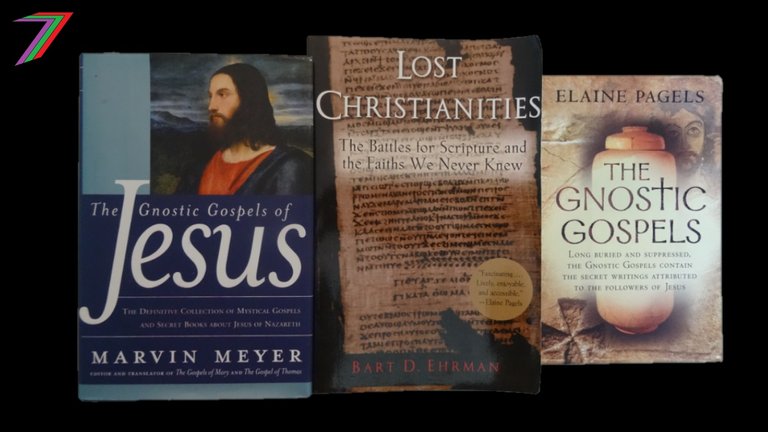
These books inspired me more than the church services or anything I have read in the Bible. They present different sets of teachings. They offer a closer more direct experience of God, which does not require teachings directly from representatives of the church (e.g. ministers, pastors, etc.).
Other influences
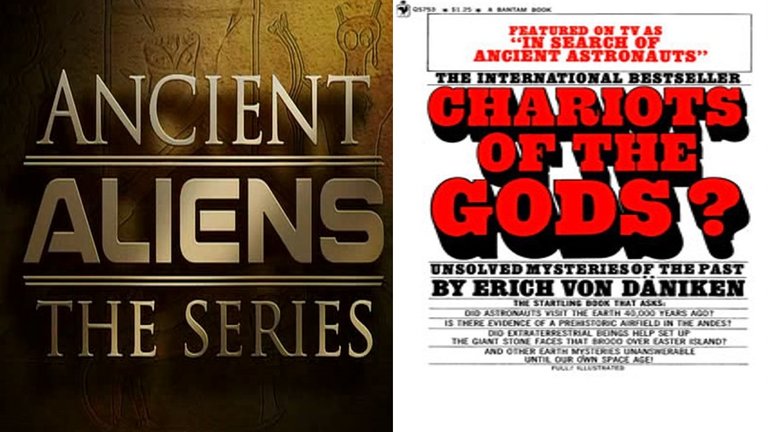
My religious beliefs are not only influenced by religion. I also consider experiences outside of religion as well as other knowledge and information I encounter. I like to consider the broader picture and how things are interconnected. I have watched many of the Ancient Aliens episodes. This series is a combination of science, myth, and religion. It pulls a lot of information together in an attempt to create a logical bigger picture regarding our past and origins.
When I was in secondary school, long before I watched the Ancient Aliens series, I read the book titled ‘Chariots of the Gods’ by Erich Von Daniken. At the time, I was unconvinced with both religion (Christianity) and science (evolution theories). Chariots of the Gods merged these concepts together to create a plausible picture of human history and development. The reading were also consistent with my ideas regarding alien intervention in the creation of human beings.
Later, when I became more familiar with Christianity and particularly Gnostic scripture, the ideas expressed by the ‘Chariots of the Gods’ and Ancient Aliens appeared more logical.
A few years later, while I was serving in the Singapore Armed Forces, I read another book titled ‘The Biggest Secret’ by David Icke. This book was a fascinating read. There were elements of it that there were consistent with several of my existing ideas about alien intervention in human existence. There were also many other aspects of the book that started to open my eyes to how the world might operate. Some of the ideas were more convincing than others. Over time, I became more questioning of the world around me.
It is disappointing that schools do not prepare children to question the world around them. I had to acquire these skills through my own curiosity; thus, delayed my own exploration of knowledge. In my post Teaching and Learning Philosophy, I discuss how school curriculum could be changed to enable children to develop skills to explore the world around them.
What Do I Believe Now?
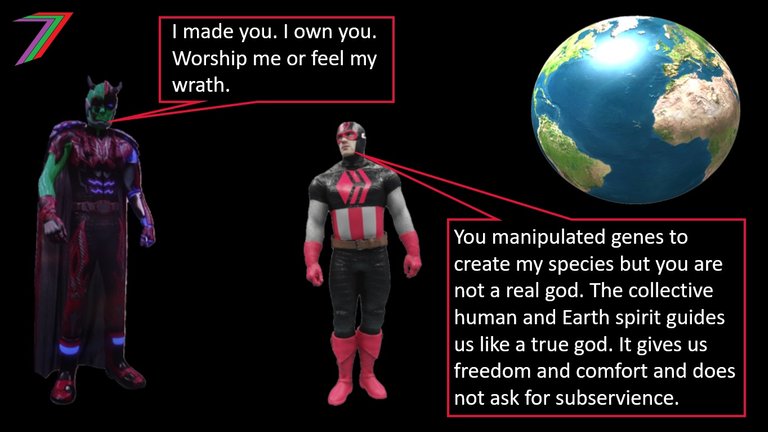
In my post God, Gods, Aliens, and Trolls, I discuss my beliefs regarding the origins of the human race. Many religions refer to the creator of human beings as God. I believe this version of god is representative of the group of gods who contributed to the creation of humans. I believe these gods are aliens.
Aliens could only visit planet Earth from a far off planet if they had highly advanced technology; considerably more advanced than human technology has ever been. A species that has the technology to travel significant distances in space are also likely to have the capability to genetically modify other species. I believe they genetically modified naturally occurring Earth apes into present day humans. They may have modified other species as well. This would make them the creators and such a feat could create the perception they are omnipotent, which aligns with religions such as Christianity.
The ancient accounts of gods intervening in human life would most likely be the aliens imparting knowledge, studying, and possibly taking some responsibility for their creations. As human beings began to utilise their increased intelligence, the aliens intervened less and eventually became almost purely observers.
According to Gnostic scriptures, the creator, who is referred to as the 'Demiurge', is not an all-knowing and all-powerful benevolent being. This supports my belief that the creator/s are alien rather than divine. They are likely to be complex beings that are in some ways similar to humans. They are intellectually superior but not necessarily morally or socially superior.
When they were in contact with humans, they may have wanted the humans to worship them and they may have wanted unconditional obedience. This would have made them like dictators and humans would be subservient to them. I think the more likely scenario is that humans used their claimed connection to the aliens (i.e. god/s) as a method of controlling other people. They manipulated people into following them by claiming they were obeying the word of the god/s. Many of the highest positions in society such as royalty and heads of religion have claimed their positions of power based on them being selected by God. Hence, this could have been the beginning of the Establishment.
I believe there is another god. This god did not create humans or any physical beings. This god is in the spiritual world. According to Gnostic scriptures, there is a creator of the spiritual world. This god is referred to as 'Monad'. I strongly believe a spiritual world exists. Sometimes we can catch a glimpse of that world when information is almost magically communicated between people and even from the dead. I believe this is done through a spiritual force or a form of god. I do not believe this god to be a separate entity. I believe it to be a collective entity of all living creatures past and present. What we do in life and possibly even afterwards contributes to this god; therefore, always growing. This belief inspires me to learn and discover as much as I can to contribute to this pool of knowledge and experience.
I do not believe this god rewards or punishes people based on their deeds in life. I believe all creatures are automatically accepted and may receive considerable enlightenment upon absorption.
My beliefs are not set in stone. I do not believe they ever will be. As explained at the beginning of the post, I believe it is important to have an open mind and consider how new information and experiences affect our beliefs. My beliefs have departed from most of the Christian teachings from the churches I attended. However, I believe the teachings and the experience to be valuable as it inspired me to look further. Without it, I would not have explored the Gnostic scriptures, which have helped open my mind to other aspects of Christianity as well as helped me, on a personal level, bridge the gap between science and religion.
How do my beliefs guide me?
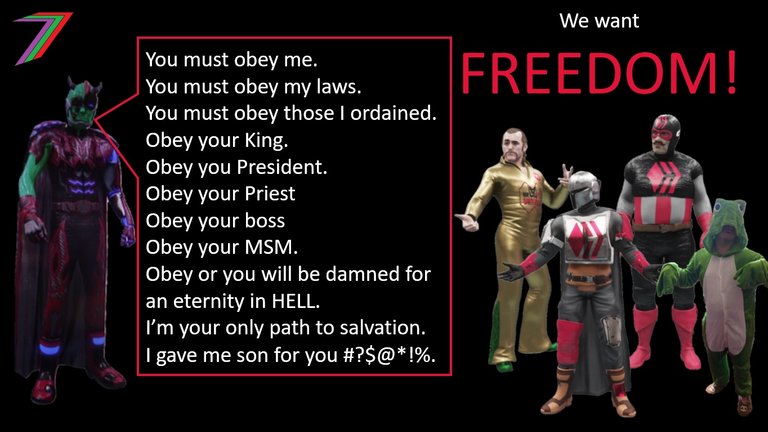
I dedicate a significant portion of my time to acquiring knowledge. I seek information, I analysis and process this information. I often communicate this information and analysis through blogs and videos. I focus mostly on economics as this is my area of expertise based on my educational background and work experience (arguably, can also be considered as part of my belief system). However, I explore well beyond the fundamentals of economic theory. I use economics as a basis for analysing many different things. Even though I do not have a large audience for my content, I believe it offers value to those who read it as well as possesses value in itself, which permeates beyond just my initial audience. I believe my work contributes to the collective human knowledge that can benefit humans for generations to come. My beliefs inspire me to continue this type of work even though most of the time it does not offer large monetary rewards.
Much of my content relating to freedom is inspired by my beliefs. My post Freedom Based Economics outlines my ideas about freedom and how a freedom approach to economics is a significant improvement over current interventionist approaches. I believe in the pursuit of knowledge and I believe acquiring knowledge is essential for optimising our freedom to achieve a better life. In my post Freedom as a Path to Happiness I discuss how valuable freedom can be if we know how to use it. This involves understanding ourselves, those around us, and our environment.
My Advice regarding our Beliefs
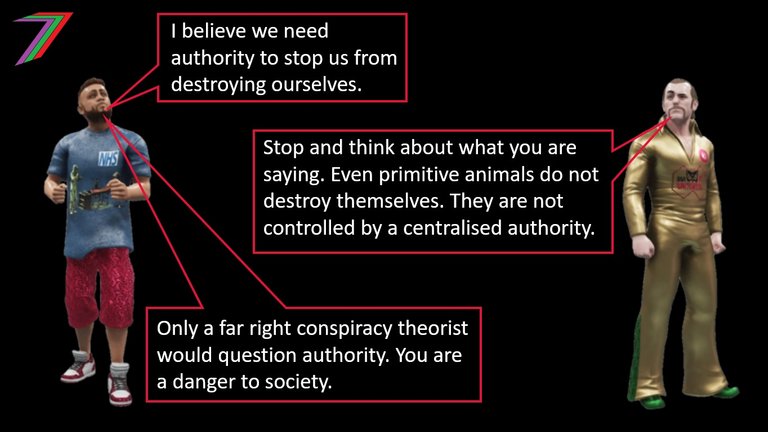
I strongly recommend that everyone explores their beliefs and belief systems. It is important to understand what and who your greatest influences are and how they affect what you believe. We can do this by asking ourselves some questions. See examples below.
- Do any part of your beliefs feel inaccurate or incomplete?
- Are your beliefs constant or evolving as you move through life?
- How do your beliefs differ now to what they were several years ago and what could have happened that may have changed your beliefs?
- Has any event occurred that has strongly pulled your beliefs in a particular direction?
- If so, what has caused this great pull?
- Is it possible that you have been caught up in your emotion?
- Is there any part of the picture you may have failed to explore because of your initial emotional response?
I frequently ask myself these or similar questions. It is easy to become caught up with a belief if it affects you emotionally or has been entrenched in your way of thinking. Hence, it is import to revisit key aspects that support your belief/s.
More posts

If you want to read any of my other posts, you can click on the links below. These links will lead you to posts containing my collection of works. These 'Collection of Works' posts have been updated to contain links to the Hive versions of my posts.
Hive: Future of Social Media
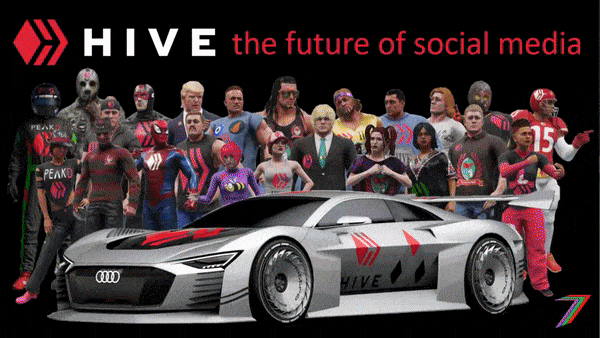
Spectrumecons on the Hive blockchain





Another very interesting and well written read, thank you.
'Belief systems' I think to be a very dangerous term. I much prefer to have a knowledge system in which I can catagorically define as what I can at least be sure is 99.99% factual and more importantly, if I can't answer a question, absolutely accept that there is currently no answer rather than create a belief system to explain it which is basically what all the 'religions' have done throughout history.
This, in my opinion has quashed genuine research as people simply follow 'leaders' who appear to have more knowledge than their own knowledge and it's people who are always the weak link. Thankfully, genuine free thinkers persue knowledge through research and experience rather than just hypothesise which is what religion has done as well as people like David Icke who has put himself out there with his own suggested narrative.
I accept that it will most likely be never possible that I will learn what happens to humans after what we know as 'death', or ever have an explanation of how big the universe is or how it started. Others do, and research this while others just hypothesise.
I am happy you are so comfortable in your beliefs and are able to adapt and reshape them as you learn but the problem is, so few can and remain rigid and unable to. This is very bad.
Hope you're well young man. What an interesting history fella. Paignton. I used to love my holidays as a child there. Thanks for the memory jog :-)
Religion is taught and practiced rigidly. This can help pull people together under a common faith. Most of the time it is used to control people. It is highly effective because religion is passed down through families. People become brainwashed at a very young age, which makes it more difficult for them to see past what they have grown up with.
A belief system does not have to rely on blind faith or rigid principles. It can be based on life experiences. A belief does not need to be forced on anyone as it can exist as a personal choice. I have found having some sort of belief adds direction and purpose. It is never going to be possible to known all the facts.
Christianity and religion as a whole is actually a touchy subject. It's a topic full of holes and contradictions indeed.
If I decide to take a look from an atheist pov
The books of the bible at times really don't make practical sense 😂 yet all Christians choose to believe because... There is nothing better to believe in.
I admire the fact that you chose Christianity of your own accord. Most people just identify as christians in a way as their following the crowds, others it was due to their parents or guardians being Christians, hence they dont understand truly what it means to be a Christian.
I think if we try to make sense of everything in the Bible we'll just be putting our minds in a one ticket trip to insanity for the following reasons;
In conclusion, although it's an unpopular opinion; we just have to exercise faith and believe in what we read from tbe Bible 🤗
The world is complex. We will only ever understand a small percentage of it. The rest we either accept it as unknown or draw our own conclusions based on what we think we know.
That's deep bro. Real and deep
Morning Spectrumecons;
I am always fascinated by people's lived experiences who grow up and continue to move around from country to country - and how those experiences shape a person. I hadn't really ever thought how faith is shaped by decisions which are outside of faith questions.
I'm writing as a Christian, but one not aligned to any strong denomination. I've been in so many denominations over the years, largely based on where I've lived. Anglican, Catholicism, Pentecostal - and, I think the advantage of engaging with all those denominations is that it doesn't tie you to a fixed interpretation. I often then take the view that Religious doctrine and scriptures are not a Science textbook, and the two can co-exist next to each other - despite being contradictory - because at the heart of each there is a different purpose. Just my 2 cents worth ;)
I think that is a reasonable approach. That way you gain perspective from lots of different angles.
People tend to separate religion and science. I believe they have quite a bit in common. For example, they both attempt to seek truth. it is just the path to that truth which differs.
Congratulations @spectrumecons! You have completed the following achievement on the Hive blockchain and have been rewarded with new badge(s):
Your next target is to reach 850 posts.
You can view your badges on your board and compare yourself to others in the Ranking
If you no longer want to receive notifications, reply to this comment with the word
STOPTo support your work, I also upvoted your post!
I do not think that more advanced civilizations interfered with the evolution of the Earth. They're probably just watching us. And probably some of them sometimes influence some people's thinking.
Our beliefs about Christianity and God really differs alot. What we belief in is what we follow suit and its what will safe us
There is plenty of flexibility on views. That provides more incentive to search deeper compared to other religions that are consistent and strict.
Yeah, you are right about that tho